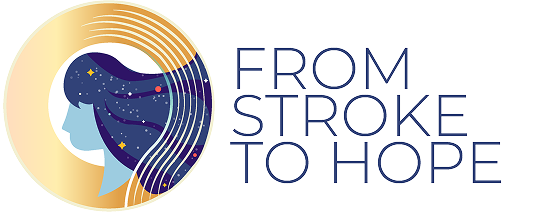Surviving a stroke is a life-changing event, and while the physical challenges are often the focus of recovery, the mental and emotional impact can be just as overwhelming. Many stroke survivors experience depression, anxiety, mood swings, and even symptoms of bipolar disorder due to the changes in the brain, loss of independence, or frustration with recovery.
If you’ve been struggling with post-stroke mental health issues, you’re not alone. These emotions are normal, but they don’t have to control your life. With the right strategies, support, and treatment, you can regain emotional balance and improve your quality of life.
This blog will cover:
✔ Why strokes cause mental health challenges
✔ How to recognize symptoms of depression, anxiety, and mood swings
✔ Ways to overcome post-stroke emotional struggles
✔ The importance of getting professional help and emotional support
Why Mental Health Challenges Happen After a Stroke
The brain controls both emotions and physical functions, so when a stroke occurs, it can disrupt mood regulation, thought processing, and emotional stability. Post-stroke depression, anxiety, and mood swings are often caused by:
1. Brain Damage & Chemical Changes
A stroke alters brain function and can affect areas responsible for emotional control, memory, and cognition. The loss of neurotransmitters (such as serotonin and dopamine) can lead to depression, anxiety, or extreme mood swings.
2. Frustration & Loss of Independence
Stroke survivors often experience a loss of mobility, speech difficulties, or cognitive impairments. This can lead to frustration, anger, or sadness over the changes in daily life.
3. Social Isolation & Loneliness
Many survivors withdraw from friends, family, or social activities due to difficulty communicating, embarrassment, or mobility issues, which can worsen depression and anxiety.
4. Fear of the Future
The uncertainty of how much recovery is possible, financial concerns, or the fear of another stroke can create overwhelming stress and anxiety.
Recognizing these underlying causes is the first step to regaining emotional control and improving mental well-being.
Recognizing the Symptoms of Post-Stroke Depression, Anxiety, & Mood Swings
It’s essential to identify early signs of mental health challenges so they can be managed effectively.
Signs of Post-Stroke Depression
🔹 Persistent sadness or hopelessness
🔹 Loss of interest in activities you once enjoyed
🔹 Fatigue and low energy
🔹 Difficulty concentrating or making decisions
🔹 Sleep disturbances (too much or too little sleep)
🔹 Loss of appetite or overeating
🔹 Feelings of worthlessness or guilt
Signs of Post-Stroke Anxiety
🔹 Constant worry or fear
🔹 Racing thoughts or inability to relax
🔹 Rapid heartbeat, sweating, or shaking
🔹 Panic attacks
🔹 Avoiding social situations due to fear of judgment
🔹 Feeling restless or “on edge”
Signs of Post-Stroke Mood Swings & Emotional Instability
🔹 Sudden, uncontrollable crying or laughter (Pseudobulbar Affect – PBA)
🔹 Extreme irritability or anger outbursts ental well-being
🔹 Feeling emotionally numb
🔹 Cycling between feeling happy, sad, or anxious in a short time
These symptoms should never be ignored. Recognizing them is the first step to seeking help and taking control of your emotional health.
Ways to Overcome Post-Stroke Mental Health Challenges
While post-stroke depression and anxiety are common, they can be managed and improved with the right approaches. Here’s how you can take action:
1. Seek Professional Help (Therapy & Medication)
Mental health professionals, such as therapists, psychiatrists, or neurologists, can provide treatment options tailored to stroke survivors.
✔ Therapy (Cognitive Behavioral Therapy – CBT): Helps change negative thought patterns and develop coping strategies.
✔ Medication: Antidepressants or mood stabilizers may be prescribed if symptoms are severe.
✔ Neurological Consultation: Some mental health symptoms may be linked to brain damage from the stroke, requiring specialized care.
👉 Tip: If you’re struggling with extreme emotions or suicidal thoughts, seek immediate help from a doctor, therapist, or crisis hotline.
2. Build a Strong Emotional Support System
You don’t have to face these challenges alone. Surround yourself with people who understand and support you.
✔ Join a stroke support group (online or in person) to connect with others who understand your journey.
✔ Talk openly with family & friends about how you’re feeling—don’t keep emotions bottled up.
✔ Consider getting an Emotional Support Animal (ESA) to provide comfort, companionship, and emotional stability.
👉 Personal Note: My ESA, Titan (my cat), has been a major source of emotional support, helping me stay focused and emotionally grounded. Having a pet to love and care for can make a huge difference in m.
3. Engage in Activities That Improve Mental Health
Your brain thrives on stimulation, and engaging in activities can help regulate mood and promote recovery.
✔ Exercise & Movement: Walking, stretching, or light physical therapy releases endorphins (the brain’s “feel-good” chemicals).
✔ Hobbies & Creativity: Painting, reading, writing, or playing music can improve mental focus and provide an emotional outlet.
✔ Cooking & Nutrition: Eating a balanced diet rich in brain-boosting foods (like omega-3s, whole grains, and fresh vegetables) can stabilize mood and improve brain function.
4. Practice Relaxation & Stress Management Techniques
Stress is a major trigger for anxiety, mood swings, and depression. Practicing relaxation techniques can help calm the nervous system and improve emotional balance.
✔ Deep Breathing Exercises: Helps regulate emotions and reduce anxiety.
✔ Mindfulness & Meditation: Encourages self-awareness and stress reduction.
✔ Listening to Music or Binaural Beats: Certain frequencies promote relaxation and cognitive recovery.
✔ Journaling: Writing down thoughts and emotions can help you process and manage feelings.
👉 Tip: Try meditation or mindfulness apps like Calm, Headspace, or Insight Timer to help with relaxation.
5. Avoid Triggers & Create a Healthy Routine
Maintaining structure and consistency in daily life can help prevent emotional instability.
✔ Stick to a daily schedule (consistent wake-up and sleep times, meals, and activities).
✔ Avoid excessive caffeine, alcohol, or sugar, which can worsen mood swings.
✔ Limit negative social interactions or environments that cause stress.
✔ Engage in positive self-talk—remind yourself of your progress and strengths.
Final Thoughts: You Are Not Alone
Recovering from a stroke is not just about physical healing—it’s about emotional resilience, too. If you’re struggling with depression, anxiety, or mood swings, don’t suffer in silence.
✔ Seek help from professionals
✔ Surround yourself with supportive people
✔ Engage in activities that boost mental well-being
✔ Create a routine that promotes emotional balance
💙 You are not alone, and there is hope for emotional recovery. Every day is a step forward, and with the right tools and support, you can regain control of your emotions and live a fulfilling life.

